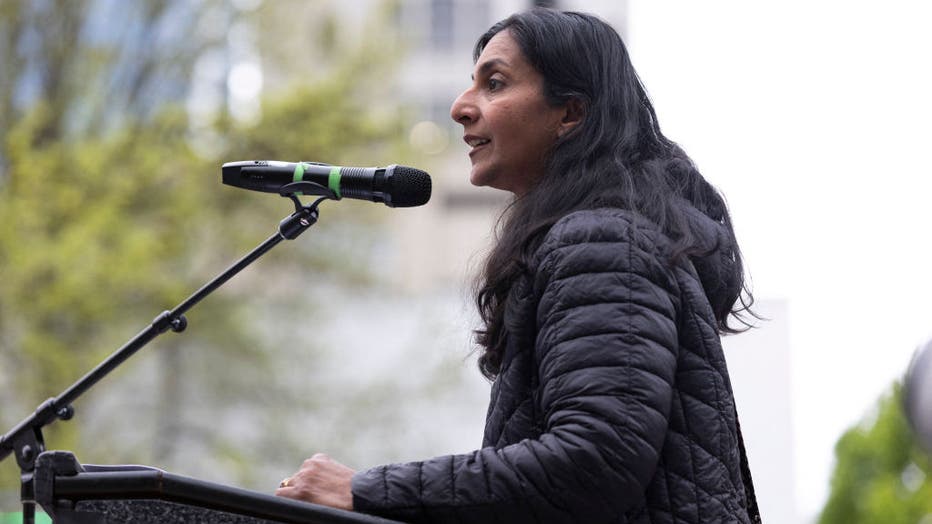Seattle could broaden anti-discrimination law to add caste
SEATTLE - Seattle City Councilmember Kshama Sawant wants to add caste to the city’s anti-discrimination policy, saying discrimination takes place throughout the U.S. based on the South Asian practice of assigning people their social status at birth.
In announcing the proposal this week Sawant said South Asian American and other immigrant working people face caste discrimination in workplaces including in the technology and hospitality sectors, The Seattle Times reported.

(Photo by Jason Redmond / AFP) (Photo by JASON REDMOND/AFP via Getty Images)
"My office is proud to bring forward first-in-the-nation legislation for our city to ban caste-based discrimination, in solidarity with our South Asian and other immigrant community members, and all working people," Sawant said in a statement. "With over 167,000 people from South Asia living in Washington, largely concentrated in the Greater Seattle area, the region must address caste discrimination, and not allow it to remain invisible and unaddressed."
Seattle’s anti-discrimination policy currently includes gender, age, race and sexual orientation.
Sawant is the city’s only Indian American council member and a socialist who recently announced she will leave the council when her term expires at the end of the year.
"The fight for this legislation is also linked to the larger working-class fight against the ongoing brutal layoffs in the tech sector," Sawant said.
In 2022, the California Department of Fair Employment and Housing won an appellate court ruling allowing a lawsuit against Cisco Systems over caste discrimination to advance. The lawsuit alleges an engineer was denied professional opportunities, a raise and promotions because of his caste background.
The Alphabet Workers Union — which represents employees of Google’s parent company — has signed on to support Sawant’s ordinance, she said.
Representatives for the union did not respond to requests for comment from the newspaper, but the union has issued statements condemning casteism in tech and at Alphabet in the past, including a statement endorsing the Cisco lawsuit.
"Caste-oppressed workers face many barriers throughout the tech industry, including at Alphabet," the 2021 statement said. "Caste is a system of oppression analogous to racial discrimination and is rampant throughout many American institutions. We support tech workers around the world who are speaking up about casteism and hostile workplaces."
Efforts to halt caste discrimination in the U.S. have been slowly growing, with Brandeis University prohibiting discrimination or harassment based on caste in 2019, and the University of California system — the largest state school system in the country — adding caste to its discrimination protection policy in 2022.
Estimated to be thousands of years old, the caste system is based in India’s Hindu scripture. It placed Dalits at the bottom of a social hierarchy, once terming them "untouchables." Inequities and violence against Dalits have continued although India banned caste discrimination in 1950.
Professors from Harvard University and the University of North Carolina, Greensboro, wrote to the Seattle City Council in support of Sawant’s proposal within hours of its announcement.
If the ordinance is adopted in Seattle, Sawant said she hopes the policy will result in similar action in other cities, and help workers in India and other countries hold U.S.-based employers accountable for caste-based discrimination.
The ordinance — likely to be voted on by the council in late February — would broaden the list of protected groups to include caste.
The council passed a similar measure last year expanding city policy to prohibit discrimination based on someone’s pregnancy status or the outcome of a pregnancy to protect people seeking abortions in the city.

